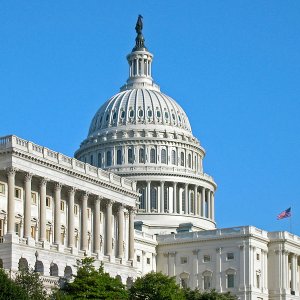Christian Science Monitor Strikes Out in its Attack on Online Poker

 The poker community has been quite ecstatic over the recent U.S. v DiCristina ruling that the Illegal Gambling Businesses Act does not apply to poker. This ruling was the first at the Federal level on poker being a game of skill rather than gambling.
The poker community has been quite ecstatic over the recent U.S. v DiCristina ruling that the Illegal Gambling Businesses Act does not apply to poker. This ruling was the first at the Federal level on poker being a game of skill rather than gambling.
In his ruling, Judge Jack Weinstein said, “Neither the text of the IGBA nor its legislative history demonstrates that Congress designed the statute to cover all state gambling offenses. Nor does the definition of ‘gambling’ include games, such as poker, which are predominated by skill.”
The Christian Science Monitor (CSM) was, perhaps unsurprisingly, far less pleased, responding with its fifth editorial condemning online poker. This latest, entitled “Misdeal on Internet Poker Gambling,” attacked the judge, the ruling, and the game of poker on many fronts, including even renaming the activity “poker gambling”!
In its analysis, CSM seemed confused that “gambling” can be defined by statute and, thus, can be defined differently by different laws. As a result, rather than seeking to show how the text of IGBA should have been interpreted as being applicable to poker, CSM instead suggested that Weinstein should have disregarded the text of the actual legislation and instead ruled based on activities CSM felt constituted “gambling.”
 Perhaps even most shockingly, CSM wrote, “Most of all, the ruling ignores the effects of opening the legislative floodgates for internet gaming.” In other words, CSM is suggesting that Federal judges should base rulings on future decisions Congress and state legislatures might make, seeking to block preemptively actions they find objectionable.
Perhaps even most shockingly, CSM wrote, “Most of all, the ruling ignores the effects of opening the legislative floodgates for internet gaming.” In other words, CSM is suggesting that Federal judges should base rulings on future decisions Congress and state legislatures might make, seeking to block preemptively actions they find objectionable.
As the CSM editorial page tends to support the Tenth Amendment and principles of limited government and separation of powers, the position advocating for judicial activism is rather uncharacteristic, to say the least. By “limited government,” in this case it seems CSM really means they want it limited to the things they support. In those cases, apparently, the sky’s the limit!
Fortunately, their readers were not falling for CSM’s twisted, convoluted logic on this matter. In fact, it was quite gratifying to read the comments section. There are 69 comments in opposition to CSM’s anti-poker position and zero in favor, showing that the American people are not quite as gullible as CSM’s editorial board apparently believed them to be.
Rich Muny is the Vice President of Player Relations for the Poker Players Alliance. Visit ThePPA.orgfor more details.




